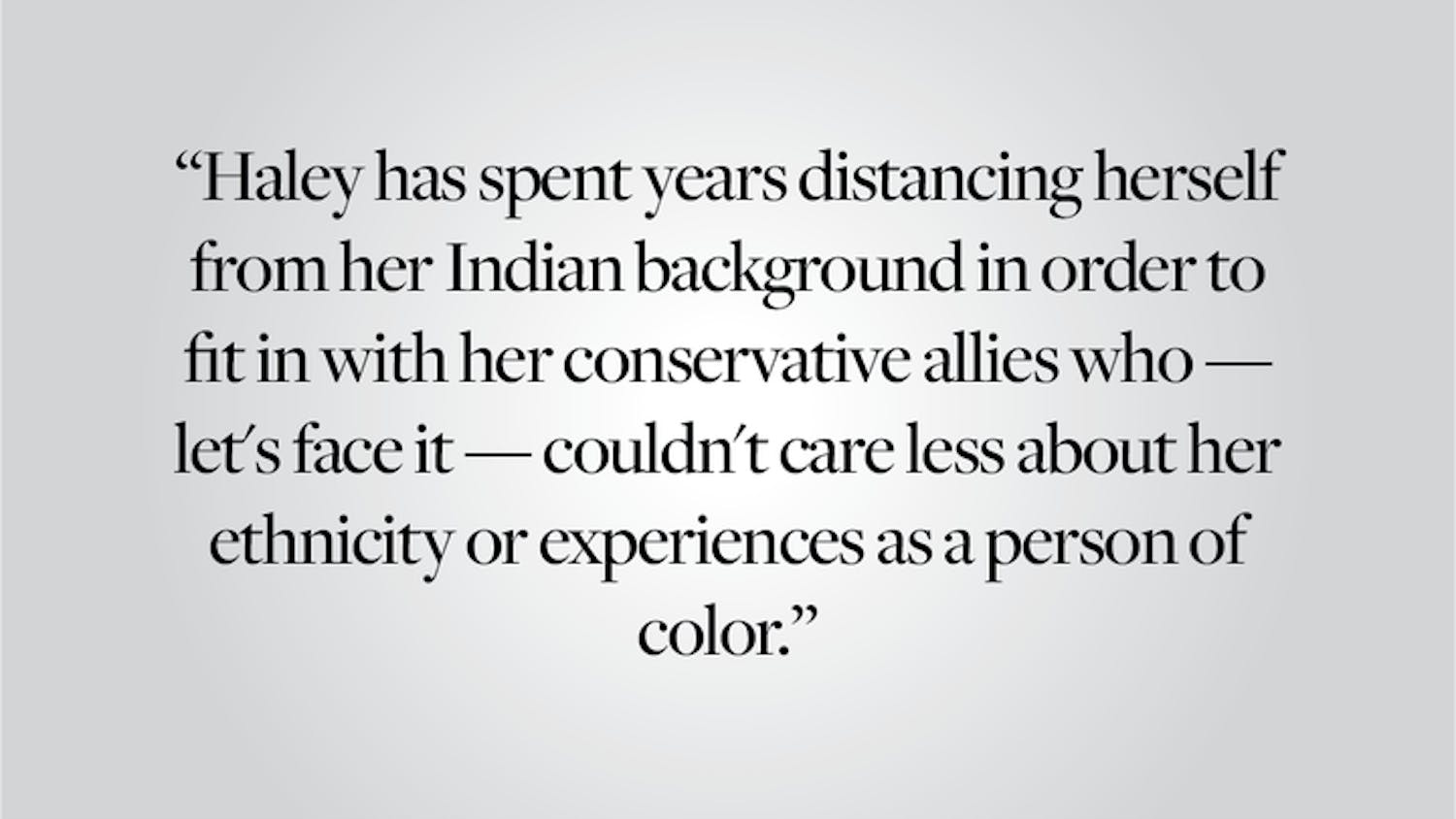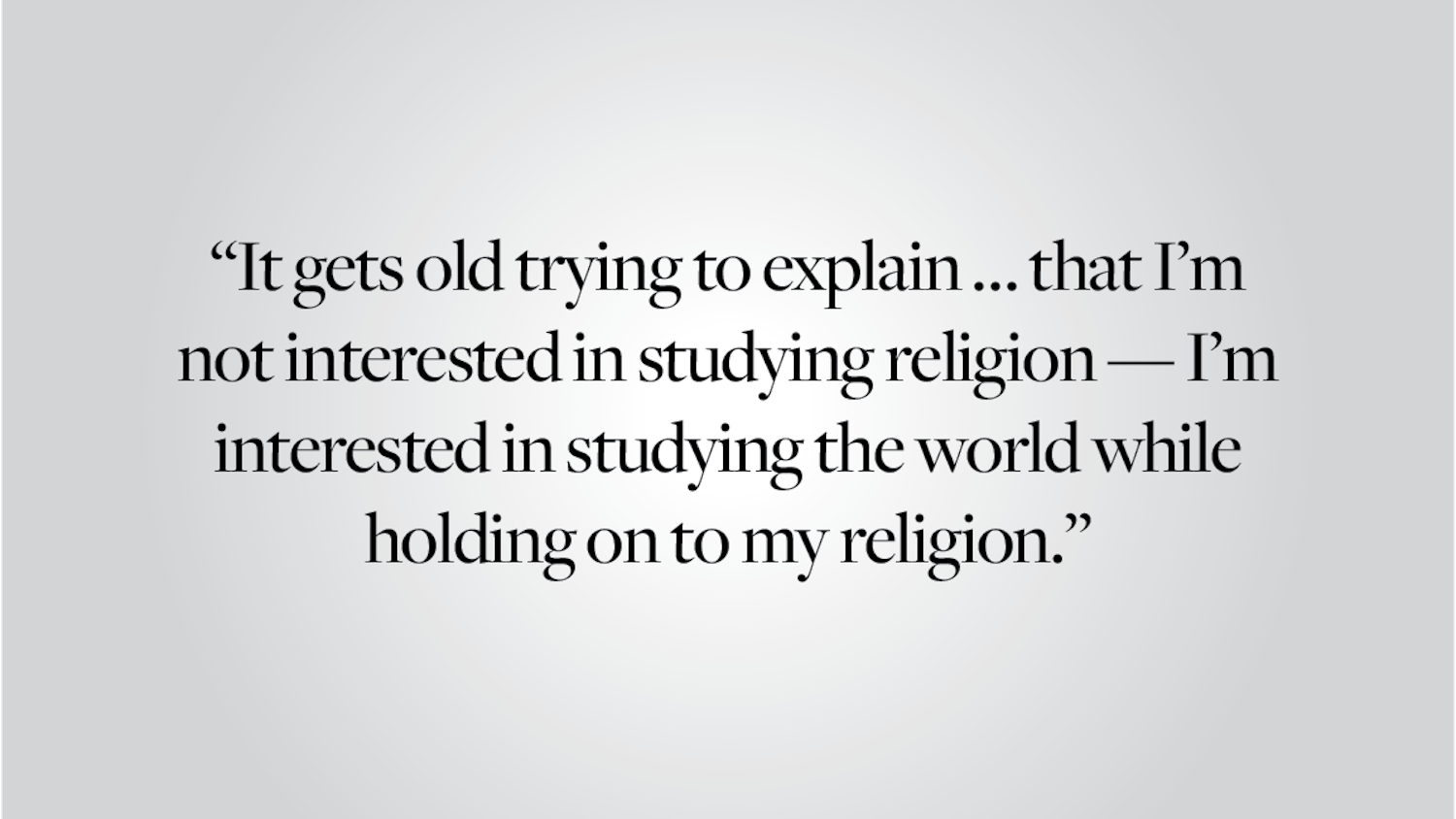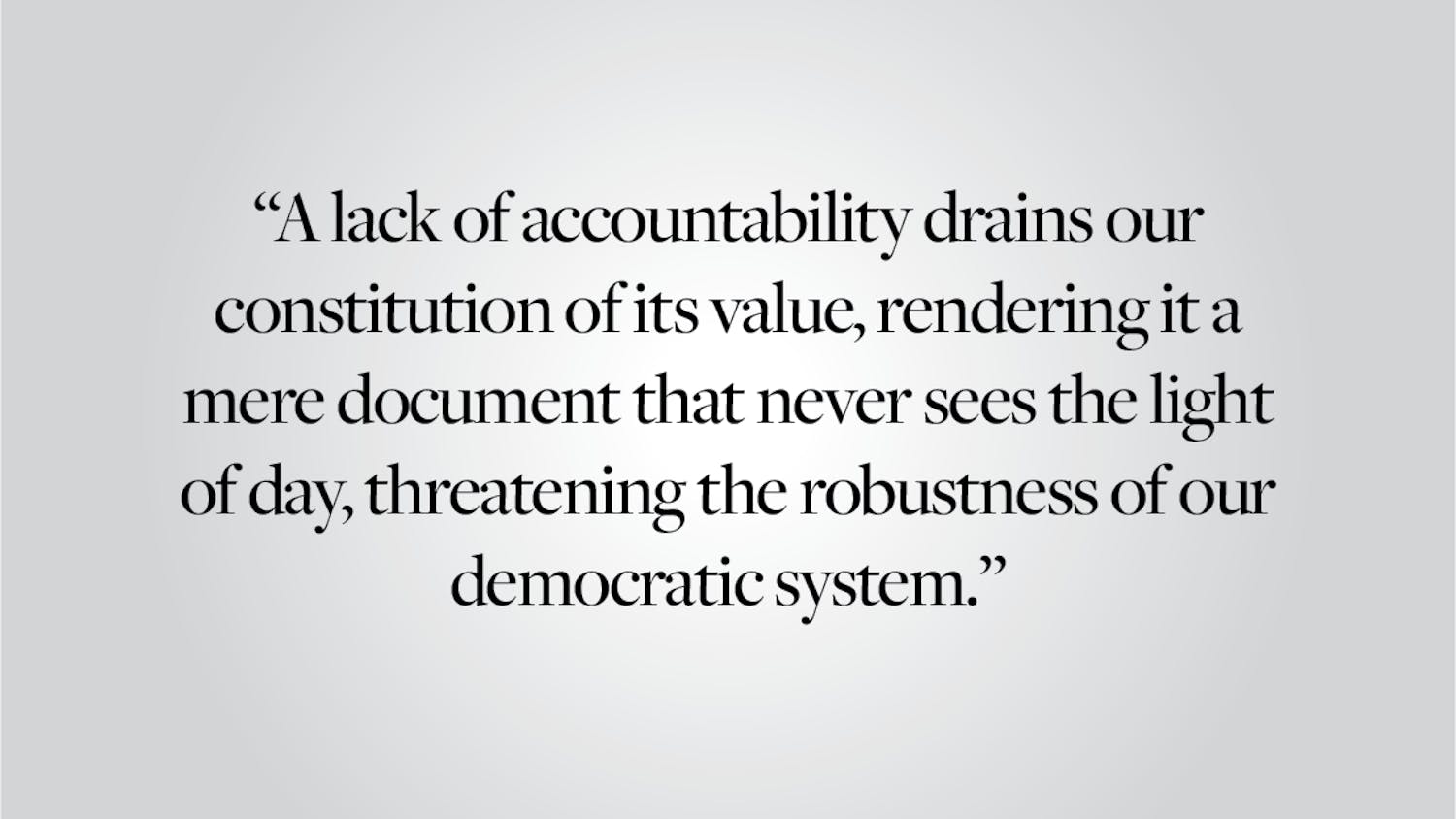Something is missing from the fine words spun by President Christina Paxson P’19, Provost Richard Locke P’17 and Executive Vice President for Planning and Policy Russell Carey ’91 MA’06 in recent days about the need for discussions on power, privilege, responsibility, feelings and community expectations. Something big. Sadly, what the administration has refused to articulate is the core value of this or any other university: free expression. Their refusal stands in stark contrast to the response of another university faced by a nearly identical set of demands for suppression and self-censorship of unpopular ideas.
Instead, the administration has accepted the claim that certain forms of free expression, including opinions columns in a campus newspaper, may cause “harm” to our students. Because we wish to protect the University community from “harm,” it therefore becomes acceptable, according to the president, provost and executive vice president, to demand that The Herald admit it made a mistake in publishing controversial opinions. In the future, according to the administration, The Herald must “live up to the expectations of the Brown community.” In clear English, the administration wants the student editors of The Herald to suppress all opinions pieces that could be deemed offensive by some members of the University community. By stifling such opinions, they hope, the University will affirm its “intrinsic, bedrock commitment to social justice and equity.” What it will actually confirm is its own timidity and cowardice in the face of voices for censorship and the suppression of ideas.
Only a month ago, the student newspaper at Wesleyan University published an opinions column challenging the Black Lives Matter movement. Some students reacted to the column immediately, charging that it had harmed students of color and claiming that the newspaper had neglected “to provide a safe space for the voices of students of color.” How did Wesleyan’s administration respond? The president, provost and vice president for equity and inclusion penned a letter entitled “Black Lives Matter and So Does Free Speech” that included this powerful statement: “Debates can raise intense emotions, but that doesn’t mean that we should demand ideological conformity because people are made uncomfortable. As members of a university community, we always have the right to respond with our own opinions, but there is no right not to be offended. We certainly have no right to harass people because we don’t like their views. Censorship diminishes true diversity of thinking; vigorous debate enlivens and instructs.”
We strongly support the rights of all who have criticized controversial opinions pieces published by the Wesleyan Argus and The Herald. We hope that they will continue to express their critical opinions and take issue with the controversial views contained in those columns. But we reject the attempt to frame free expression with which one disagrees as “harm” or to claim that speech that some may find offensive must be censored. At stake are the soul and character of a liberal and open university. We expect the administration to stand up for free expression whenever it is challenged. To date they have failed to do so.
Ross Cheit is a professor of international and public affairs and of political science. David Josephson is a professor of music. Glenn Loury is a professor of the social sciences and of economics. Kenneth Miller ’70 P’02 is a professor of biology. Luther Spoehr is a senior lecturer in education.




